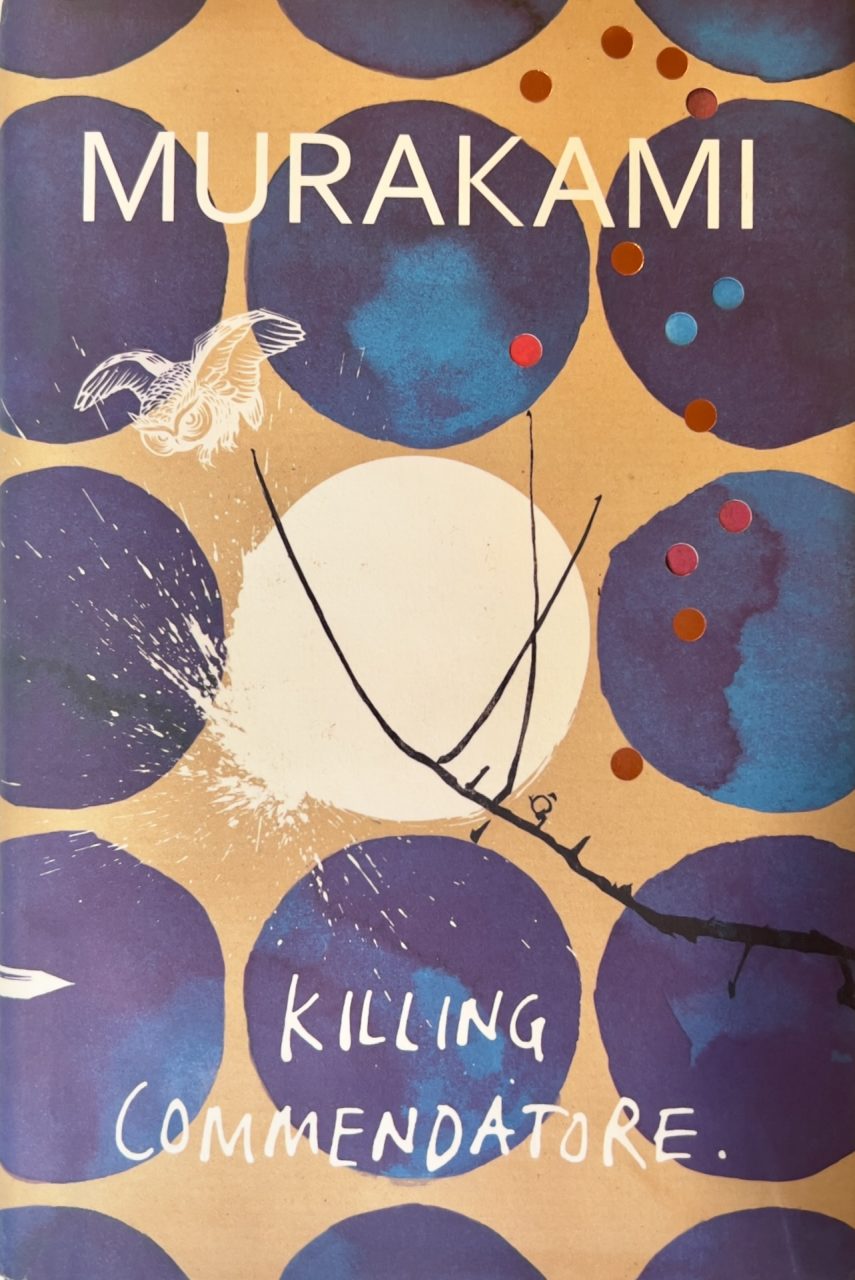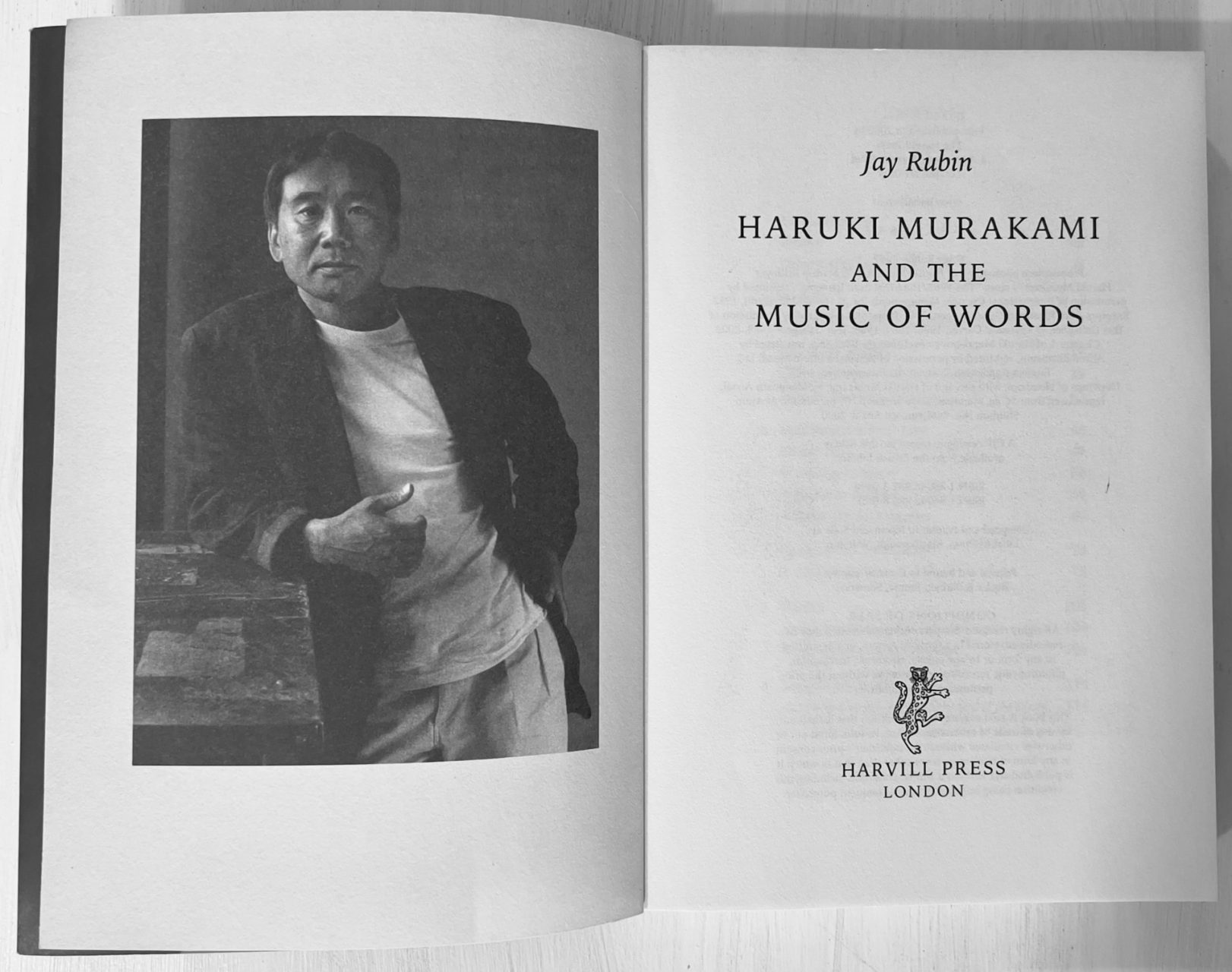
I can’t remember when I first came across Murakami, but it was some time in the early 90s, probably his 3rd novel A Wild Sheep Chase (1982). From that first reading I was hooked, entranced by his surreal imagination, the contemporary view of Japanese society and his wide ranging and accurate musical references. You could tell you were taking off on a wild careening ride, destination unknown. In fact this is the way he writes, the novel expands autonomously as he works on it, yet he nearly always manages a satisfying conclusion. As he says “writing itself is like dreaming”. To me this makes him a truly modern novelist, you don’t feel manipulated by the characters and events, the door is ajar and there is simply a sense of mutual exploration. The often bizarre characters grow organically, reacting to strange events in a totally plausible way. These are open books, there is no predestination. He manages this because his writing style is somewhat prosaic, relating them in a very down to earth way, however bizarre they might be.
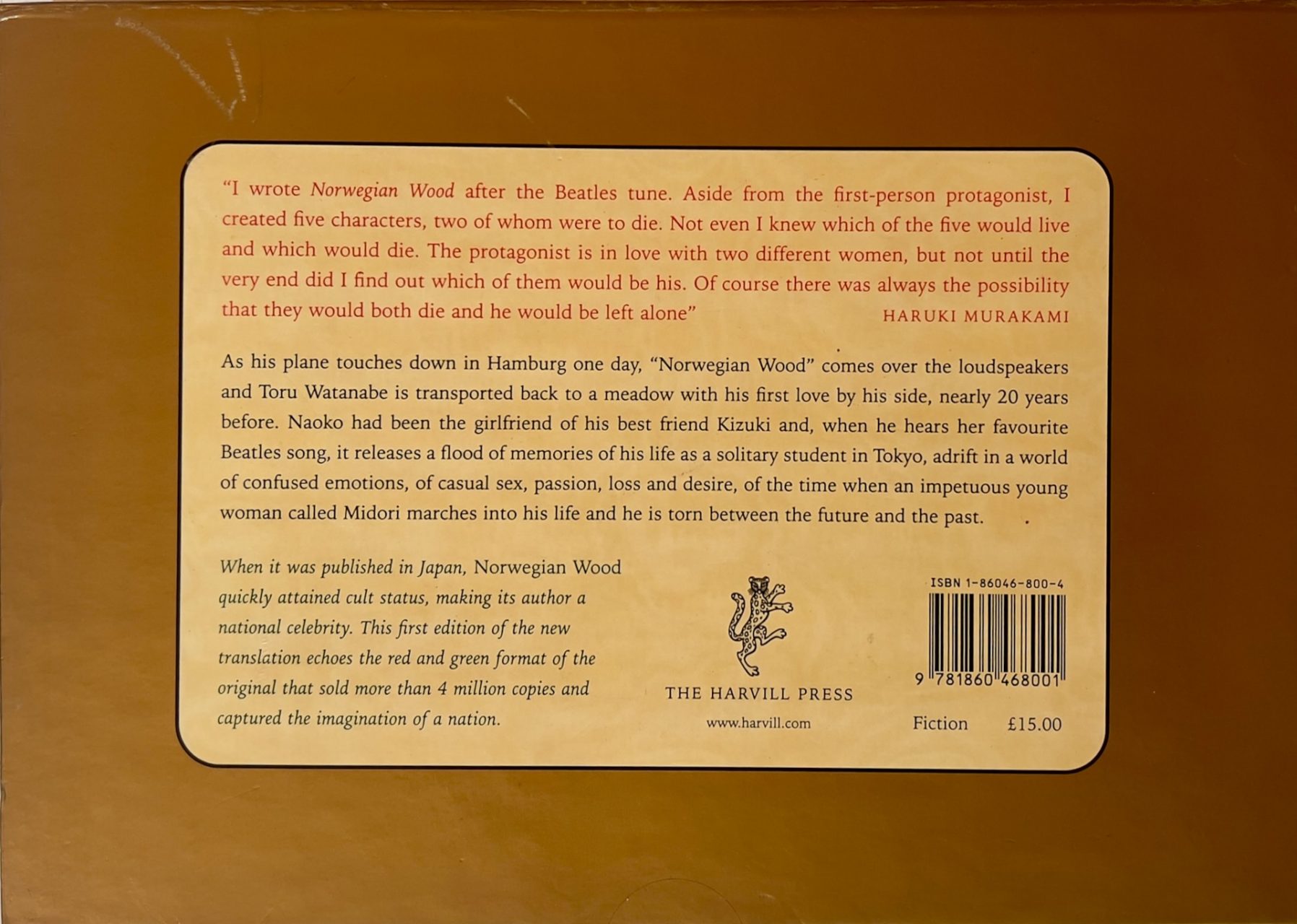
This unique style is probably down to the fact he never intended to be a novelist and certainly never trained to be one. He found his own unique voice, he explains in Novelist as a Vocation (2022) , by writing in English and then translating this back into Japanese. This gave him the simplified, pared down and highly readable style we know today. He is not in any literary tradition, which lends him an honest and personal voice. In fact the story of how he became a novelist, which he has told several times, could come straight out of one his novels. At the age of 29, he was running his own small jazz club called Peter Cat, when he went see his favourite baseball team and…
The satisfying crack when the bat met the ball resounded throughout Jingu Stadium. Scattered applause rose around me. In that instant, for no reason and on no grounds whatsoever, the thought suddenly struck me: I think I can write a novel.
I can still recall the exact sensation. It felt as if something had come fluttering down from the sky, and I had caught it cleanly in my hands.
After the match he bought writing paper and a pen and proceeded to write every night for six months, producing his first novel Hear the Wind Sing (1979).
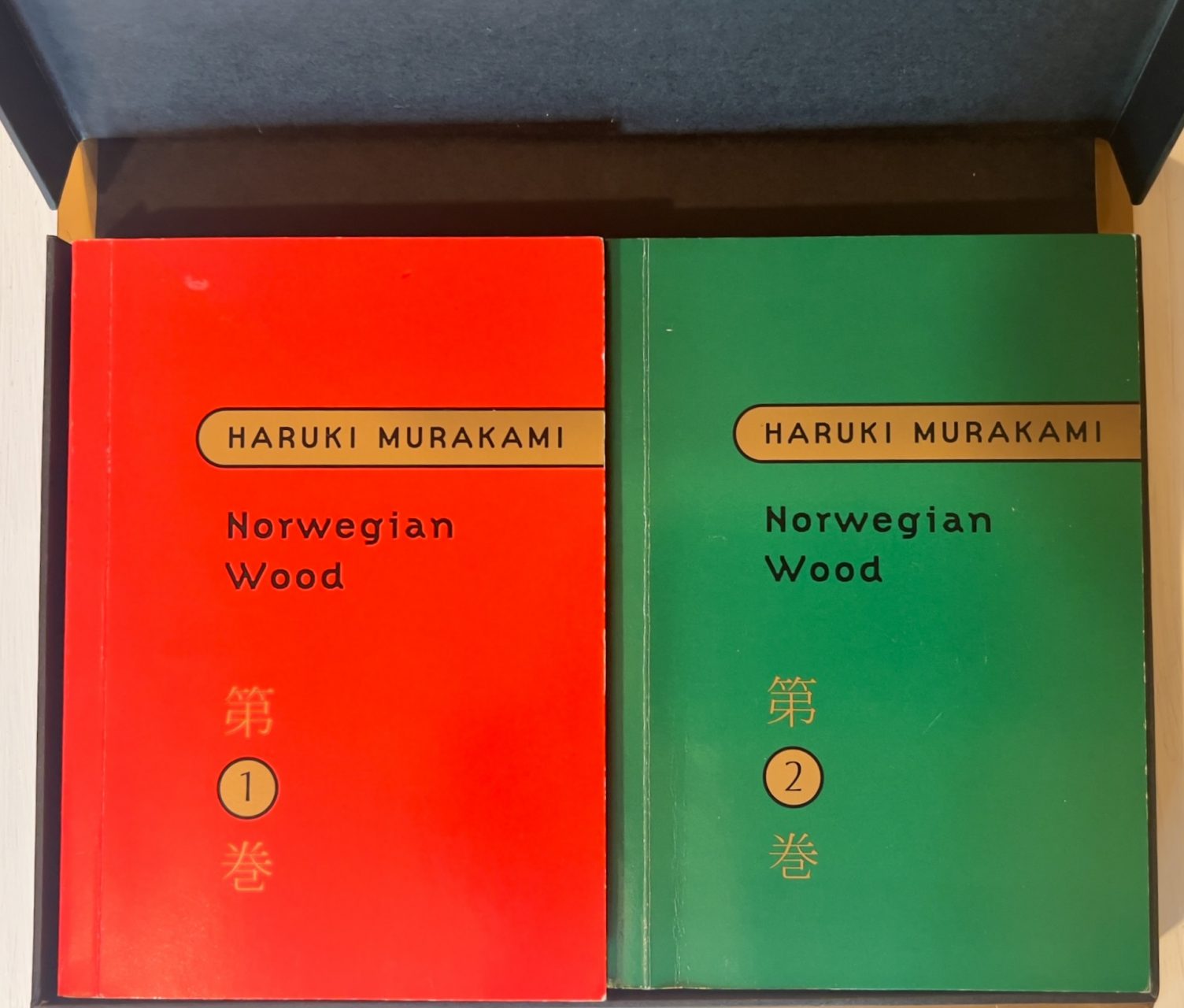
Before he became well known in the West, I always felt that Murakami readers were like a secret club. If in conversation with someone unknown and the subject of his books arose and they had read them, a mutual friendship seemed assured. A particularly bizarre experience of this nature happened in Northern Armenia. The country was suffering at the time from a complete breakdown, the Russians had left a few years previously, leading to the closure of farms, factories and even the education system. Nobody seemed to know who ran anything, people were just getting by in unregulated chaos. I was reading Hard-Boiled Wonderland and the End of the World (1985), a surreal cyberpunk novel about a crumbling walled town. There were many strange parallels between the book and the situation I found myself in and Murakami has stated that “I was so popular in the 1990s in Russia, at the time they were changing from the Soviet Union – there was big confusion, and people in confusion like my books”. Anyway to my surprise, one of our drivers (in fact from Syria) had read some Murakami, so I had leave my copy of the book with him, it seemed both appropriate and fair in the strange circumstances.
The lack of pretension combined with the acid and surreal wit in Murakami’s work, often makes me reflect on the similarity to British writers like Charles Dodgson aka Lewis Carroll, J.G. Ballard and even Brian Catling. There is an unusual symbiosis between Japan and the UK as islands at the end of continents, which perhaps leads to a unique form of isolated irrationality, as well as a secret understanding of the others situation. While his authorial voice can always be heard, his novels are quite varied, and he appears to have great fun with the design, Norwegian Wood (1987) appearing as 2 small volumes in a box, 1Q84 (2010) had a heavy black burnt look and Killing Commendatore (2017) had bullet holes on the cover. He always entertains the reader.
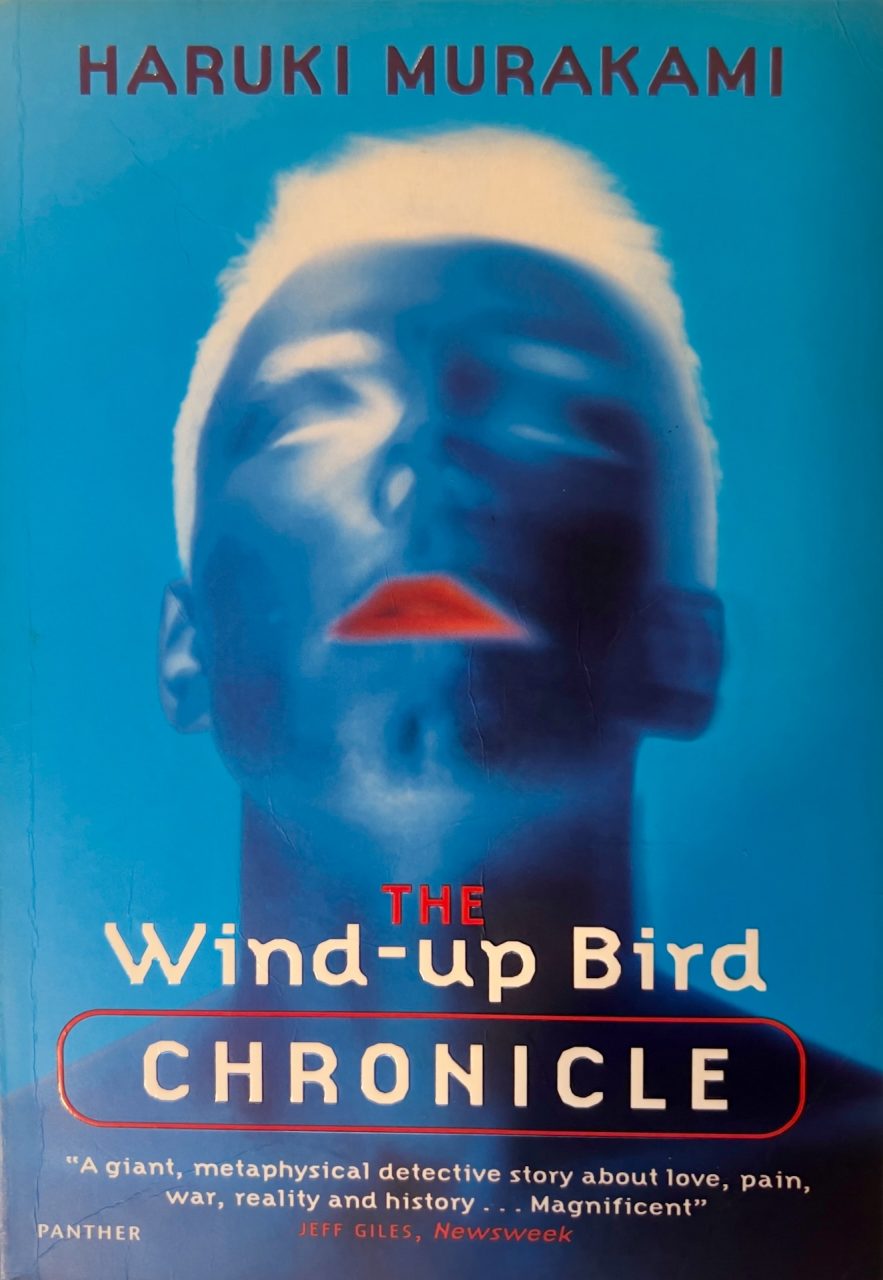
My admiration for Murakami was cemented by perhaps his greatest novel The Wind-Up Bird Chronicle (1995). If you read only one of his novels, this is the definitive one, for me at least. Shortly after this I read Haruko Murakami and the Music of Words (2002), a biography written by his translator Jay Rubin. Murakami had always been a quiet and mysterious character but this book revealed both his life story and the vast range of his output once he became an author. He writes translations of F. Scott Fitzgerald, Truman Capote, Raymond Carver as light relief from his novels, as well as a several collections of short stories, interviews and reportage. The novel Norwegian Wood (1987) which ensured his popularity in Japan and led to his living in the USA for several years, is charming, sad and maybe a little dated. Perhaps avoid 1Q84, it is huge and highly repetitive, but let me recommend nearly everything else. There are two semi autobiographical works What I Talk About When I Talk About Running (2007) and Novelist as a Vocation (2022), both of which are fascinating. All of his short story collections are highly entertaining and I thought his most recent novel Killing Commendatore (2017) to be a return to form. Looking forward to The City and Its Uncertain Walls due to published in translation later this year.
